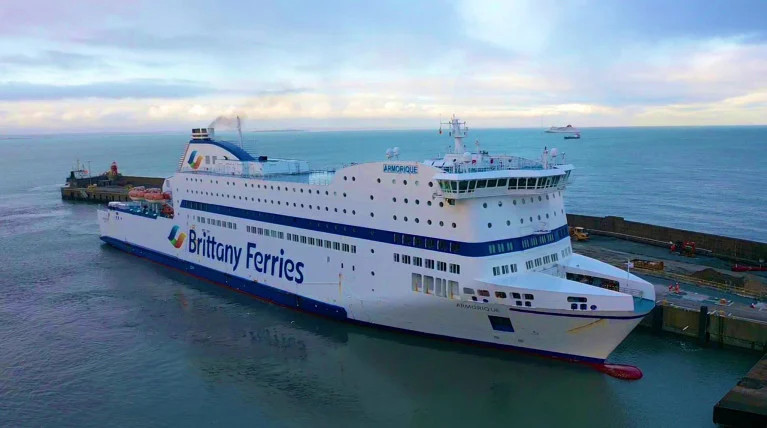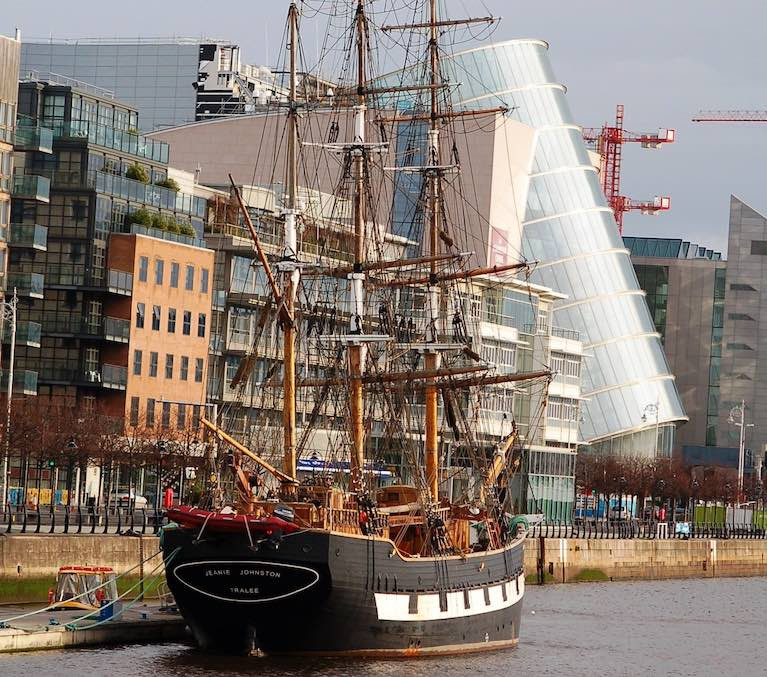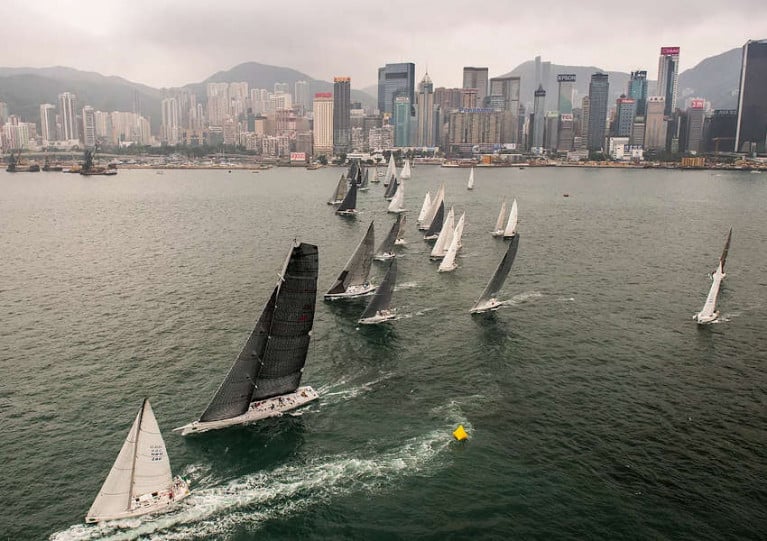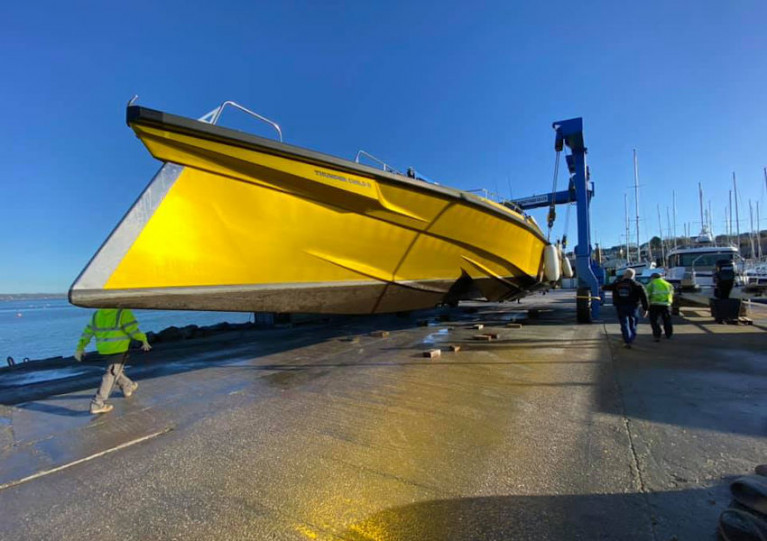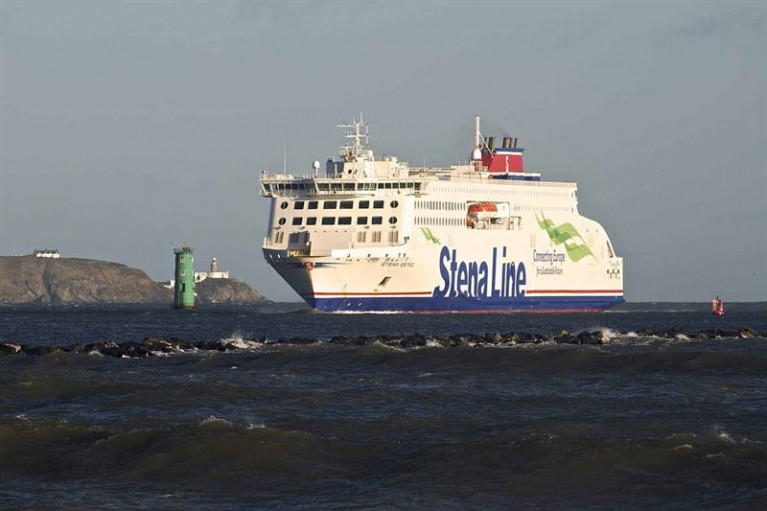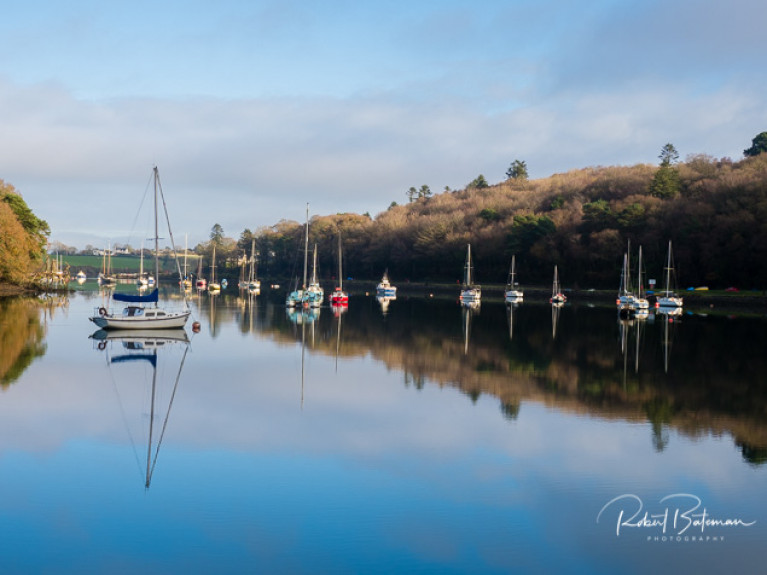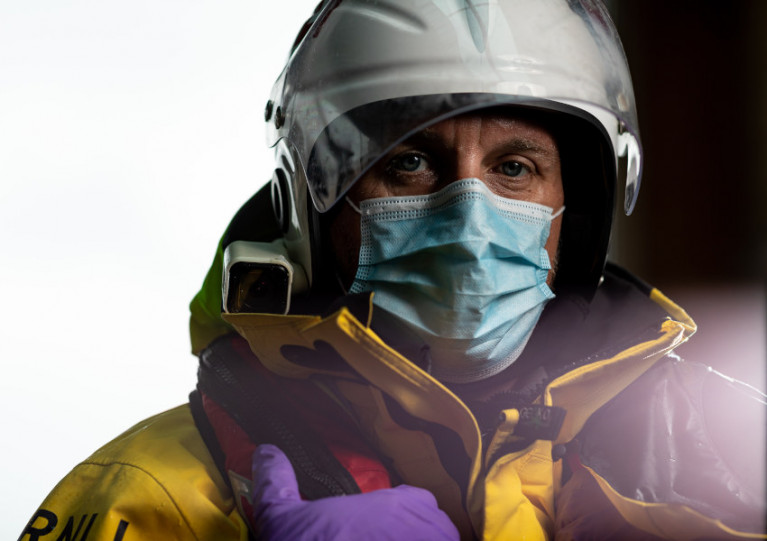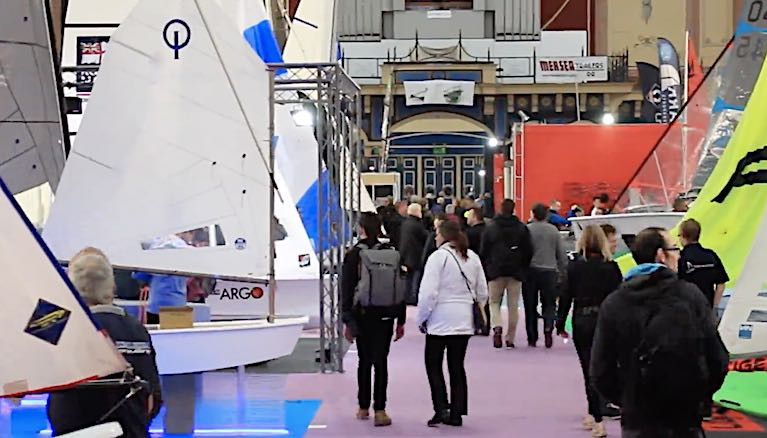Displaying items by tag: Covid 19
Hauliers No Longer Require Proof of Negative COVID Test on Direct Maritime Routes from Ireland to France
The Department of Transport confirmed today (Friday 5 March) that the French Government will no longer require proof of a negative COVID test result from hauliers travelling on direct maritime routes from Ireland to France.
French legislation has been amended with immediate effect in light of the very low positivity rates of COVID-19 among commercial vehicle drivers, and the move is in line with the EU Green Lanes recommendations.
Proof of a negative test result will still be required for drivers travelling from Great Britain to France or the Netherlands, and therefore any hauliers travelling from Ireland via the UK landbridge route to enter France or the Netherlands must still have proof of a negative test result.
Proof of a negative test result is also still required for travel to Germany. Drivers intending on travelling on such routes may continue to obtain a test here in Ireland at existing testing facilities (or in Great Britain).
In accordance with EU Green Lane recommendations, Ireland will continue to maintain a policy of exempting essential transport workers not showing symptoms of COVID-19 from quarantine and testing requirements when entering Ireland.
The Department of Transport says the Government will continue to encourage all EU Member States to follow this policy also in the interests keeping supply chains open within the Single Market. This is particularly important for the continued movement of medical supplies and essential goods into the country, it added.
What Covid-19 Means for Irish Sailing Fixtures in 2021
It's March 1st and depending on who you talk to there is either tremendous optimism that the 2021 Irish summer sailing season can get underway as scheduled or alternatively, the ongoing pandemic will force us to navigate a stop-start season like we did last year.
Certainly, with an estimated 82% of the population vaccinated by the sixth month of 2021, the hope is it could be full steam ahead. Some pundits say such a timeframe will, unfortunately, be just too late for some early fixtures that are now 'fifty-fifty'. Others predict the season will get away alright but not until June.
Despite the unpredictability of the challenges, ICRA Commodore Richard Colwell told Afloat this weekend, he is hopeful that the season ahead will be a good one even if there might be difficulties early on.
Other regatta organisers say they are much more confident of regattas going ahead than they were even two or three weeks ago, such is the changing scenario but there is no doubt confusing messages and lack of clarity is raising the ire of a weary nation.
The Government’s revised plan published earlier in the week focuses on the phased return of schools and childcare. There is little change to the published five levels of the ‘Living with Covid Plan’. You can read the full Government update here
Ireland remains under current Level 5 restrictions until 5th April at the earliest when Government has stated that the “staggered start of easing of other areas of restriction with a focus on outdoor activities including sport” may be considered.
 Organisers of big yacht racing events have made plans to be COVID compliant, including Volvo Dun Laoghaire Regatta that will be split over two weekends in July Photo: Afloat
Organisers of big yacht racing events have made plans to be COVID compliant, including Volvo Dun Laoghaire Regatta that will be split over two weekends in July Photo: Afloat
Mary O'Connor, CEO of the Federation of Irish Sport, has called on the government to produce "a detailed roadmap" on the reopening of sports so that their 81 national governing bodies can make plans for a return "in a safe manner". In sailing's case that would certainly make a lot of sense both for volunteer organisers and competitors alike.
Clubs planning major regattas – often a year or more in the making – are again faced with impossible decisions.
Already, May's Scottish Series on the Clyde has been reformatted in a bid to cope with restrictions. Irish boats face quarantine requirements if they travel.
 ISORA’s new early-season cruiser-racer fixture along the Dublin coast was cancelled in January's lockdown restrictions Photo: Afloat
ISORA’s new early-season cruiser-racer fixture along the Dublin coast was cancelled in January's lockdown restrictions Photo: Afloat
A new ISORA 'Early Season Series' originally planned for January was to continue the offshore's body's successful 2020 coastal racing out of Dun Laoghaire Harbour. However, the current lockdown put paid to those plans, leaving ISORA boss Peter Ryan to reschedule for later in 2021.
The 2021 Irish Youth Sailing National Championships planned for April has moved out to October at Royal Cork Yacht Club.
June's Bangor Town Regatta has been scrubbed entirely on Belfast Lough.
Buds of the new season are, nevertheless starting to appear. This weekend and last weekend's warm westerlies on Dublin Bay, the country's biggest boating centre, showed plenty of activity out from Dun Laoghaire Harbour. Solo sailing or sailing in pods is proving popular with RS Aeros, four Fireballs, two foiling Waszps, a GP14 as well as a number of sailing cruisers all enjoying some recreational sailing and boating.
The National Yacht Club lift-in of sailing cruisers and keelboats is currently going ahead on April 9th and so is the Royal St. George on April 10th, both key signs of a determination to get 2021 underway.
In the latest Commodore’s Update from Howth Yacht Club, Paddy Judge has outlined its plans for a hopeful restart to sailing if restrictions allow from April.
 2020 DBSC Turkey Shoot and 2021 Spring Chicken Series racing fell to Covid-19 on Dublin Bay Photo: Afloat
2020 DBSC Turkey Shoot and 2021 Spring Chicken Series racing fell to Covid-19 on Dublin Bay Photo: Afloat
Dublin Bay Sailing Club, the umbrella organisation that runs racing for all four waterfront clubs in a combined fleet of 250 sailing cruisers and dinghies and 1,200 members, is scheduled to start on Saturday, April 24th. New Commodore Ann Kirwan has the unenviable job of trying to prepare for a season that includes the significant cost of laying over 20 marks across the bay and preparing for a first race while at the same time trying to keep an eye on transitions between Government COVID levels, where there will be ‘amendments’ published, based on the most recent medical advice at the time.
 Dun Laoghaire Laser sailors racing inside the town's harbour in 2020. It looks like the single-handed DBSC class will get a further boost this summer thanks to the continuing threat of COVID-19 Photo: Afloat
Dun Laoghaire Laser sailors racing inside the town's harbour in 2020. It looks like the single-handed DBSC class will get a further boost this summer thanks to the continuing threat of COVID-19 Photo: Afloat
The question is will Ireland possibly go from Level 5 to Level 2 from April 5th to April 24th, a scenario that would allow the first DBSC race of 2021 get underway on schedule?
Either way, it will be another altered season with hospitality and clubhouses not scheduled to open till mid-June. Certainly, the Government Advisory in operation against all non-essential international travel will impact events such as Dun Laoghaire's staging of the Laser 4.7 World Championships planned for August.
DBSC was a bellwether in 2020, achieving a remarkably full programme in 2020 when Pandemic Regulations permitted, a feat that led to the club picking up the Mitsubishi Motors Sailing Club of the Year Award.
Certainly, if DBSC gets underway it will provide great hope to other race and regatta organisers such as June's Volvo Dun Laoghaire to Dingle Race, O'Leary Insurance's Sovereign's Cup in Kinsale and July's Volvo Dun Laoghaire Regatta, where they have already put in place pandemic restriction measures to reduce numbers.
Increasingly though it looks like international travel restrictions will kerb UK visitors to the 2021 Irish regatta circuit.
 Keith Miller’s Yamaha 36 Andante from Kilmore Quay is one fo ten Irish yachts registered for August’s Fastnet Race where COVID protocols are likely Photo: Afloat
Keith Miller’s Yamaha 36 Andante from Kilmore Quay is one fo ten Irish yachts registered for August’s Fastnet Race where COVID protocols are likely Photo: Afloat
In the UK, RORC has announced it expects to return to overnight offshore racing and the London club is planning a return to its Spring Series on the Solent in April.
But for now, even for events as late as West Cork Calves Week in August or the ICRA Nationals in September, the advice of Afloat's WM Nixon given last December still rings true; Irish Sailing Fixtures for 2021? The Best Plan is to Keep Planning.
There will be updates from regattas organisers at next weekend's ICRA conference. More here.
If you have any observations or queries, please email Afloat and we will do our best to clarify any of the Government’s guidelines.
Tokyo Olympics Doubtful, Says Man Who Ran London 2012
The head of the organising committee for the London Olympics in 2012 has said the Tokyo Games scheduled for this summer look “unlikely” to go ahead.
As the Guardian reports, Sir Keith Mills told the BBC he “would be making plans for cancellation” if he were in charge of this year’s Olympics, postponed from 2020 over the coronavirus pandemic that has shown little sign of dissipating as a slow vaccine rollout begins.
Japan is currently under a state of emergency prompted by a surge in Covid-19 cases, just six months before thousands of athletes are set to converge for the Olympiad.
A significant number of competitors have yet to qualify for Tokyo 2020, including the likes of Irish Laser sailor Ewan McMahon, Rio rep Finn Lynch as well as Liam Glynn all vying for one fo the last Tokyo berths along with Ireland’s two 49er campaign duos.
Despite the present situation, World Athletics president Sebastian Coe said he was confident the Games will go ahead “but they will look different”.
Last week a spokesperson for the Tokyo organising committee insisted there had been no discussion about a cancellation or extended delay.
The committee’s head Yoshiro Mori said postponing the Games a second time would be “absolutely impossible”.
The Guardian has more on the story HERE.
Boats are Excluded From State COVID Support Because They are Mobile
It seems logical, boats move, but that is their business. The Department of Finance takes a different view.
It has told boat operators that this mobility excludes them from being given the supports offered to businesses which are landbound – operating from fixed structures - bricks, mortar and buildings – under the Government's Covid 19 pandemic provisions.
That is the core of the disagreement between the Department and the Killary Fjord Boat Tours Company which operates vessels on Ireland's only fjord and on the River Liffey and Grand Canal in Dublin, as well as one that is fixed in position – the Jeanie Johnston moored at Custom House Quay.
 The Spirit of Docklands (50 tonnes, 48 passengers) was custom-designed for the River Liffey in Dublin
The Spirit of Docklands (50 tonnes, 48 passengers) was custom-designed for the River Liffey in Dublin
The Connemara Lady, (150 tonnes, passenger capacity 150), is a tourist operation at Killary Harbour in Connemara on the borders of Galway and Mayo. The Spirit of Docklands (50 tonnes, 48 passengers) was custom-designed for the Liffey, operating between Bachelors Walk and the East Link Bridge. Cadhla (50 tonnes, 65 passengers) was custom-designed for the Grand Canal, operating dining cruises between Mespil Road and the Grand Canal Dock. The tall ship, Jeanie Johnston, recalls Ireland's emigration history and sailed to the USA and Canada before becoming a museum ship at Dublin Port.
 The Connemara Lady, (150 tonnes, passenger capacity 150), is a tourist operation at Killary Harbour in Connemara
The Connemara Lady, (150 tonnes, passenger capacity 150), is a tourist operation at Killary Harbour in Connemara
"Our boat-based businesses are in a plight due to their exclusion from the Covid Restrictions Support Scheme. Indeed, the same applies to all marine tourism infrastructure throughout the country," the company says. "We have been excluded on the basis that our business has been construed as 'mobile' by the Dept. of Finance and as such deemed ineligible for this and other schemes.
"Our boat-based businesses are in a plight due to their exclusion from the Covid Restrictions Support Scheme"
This is despite the fact that, while our business moves as they provide their service we are bound by law and regulations and licensing to operate within a single area at all times."
 Cadhla (50 tonnes, 65 passengers) was custom-designed for the Grand Canal, operating dining cruises between Mespil Road and the Grand Canal Dock
Cadhla (50 tonnes, 65 passengers) was custom-designed for the Grand Canal, operating dining cruises between Mespil Road and the Grand Canal Dock
So, therein is the problem of perception – or understanding.
Micheál O Cionna, the Founder and Managing Director of the company, is my guest on this week's Podcast.
I've asked the Department of Finance to explain their perception and understanding of boats.
Listen to the Podcast below
Rolex China Sea Race 2021 Cancelled Amid Pandemic Concerns
Royal Hong Kong Yacht Club has cited “continued uncertainty regarding international border openings” amid the coronavirus pandemic in its decision to cancel the 2021 Rolex China Sea Race, which had been due to start on 31 March.
In a statement, RHKYC Commodore Denis Martinet, said: “We are of course very disappointed having already postponed this blue ribbon event last year.
“We felt that the situation would have improved sufficiently by March 2021. Yet this is not to be and we feel that it is prudent to cancel.
“The club will nevertheless endeavour to organise an independent race around the same dates in full compliance with any restrictions in place.
“Meanwhile we shall work tirelessly to bring about a fantastic Rolex China Sea Race in 2022 to celebrate its 60th anniversary.”
The club has scheduled next year’s offshore event for 13-27 April 2022, and thanked all registered teams and sponsor Rolex for their support.
The Rolex China Sea Race is among a number of casualties of continued pandemic restrictions in 2021, with the most recent being the RORC Caribbean 600 as previously reported on Afloat.ie.
Crosshaven Boatyard Appeals to Customers for Patience Under Latest Pandemic Restrictions
With the rise in COVID-19 cases and in line with Government guidelines, Crosshaven Boatyard has no option but to close its gates for the time being.
In a statement on social media, the Cork Harbour boatyard appealed for private boat owners to have patience under the current restrictions, which will remain in place until at the least the end of January.
Those within the 5km travel radius may visit to check on their vessels, but are asked to come alone and not to carry out any works.
“If for any reason you feel the need to have your boat checked, please contact the office and we can arrange one of our staff to do this on your behalf,” the boatyard said, adding that staff will be at hand for emergency haul-outs.
The boatyard will also still support essential services such as commercial fishing, Department of Defence, science and research, the RNLI and Port of Cork.
The team added: “Finally we would like to thank you all for your continued support and we look forward to seeing you all back in the water boating once again. Stay safe.”
Crosshaven Boatyard recently changed hands, and new owner Pearse Flynn shared details of his plans to make its facilities the backbone of offshore wind farm services.
Operator Stena Line Issue Statement for 'Passenger' Travel
Ferry operator Stena Line has issued an important update for passengers intending to travel on services to the Republic of Ireland and the Netherlands.
Due to new measures imposed by the Irish Government and the Government of the Netherlands, there are restrictions on passenger travel into both countries from the UK.
Republic of Ireland
For at least the next 48 hours from midnight tonight (Sunday 20 Dec), passenger travel is not permitted on our services from the UK into the Republic of Ireland. Except for essential supply chain workers. This affects the operator's Holyhead-Dublin and Fishguard-Rosslare routes.
The Netherlands
Until further notice no passenger travel is allowed from the UK into the Netherlands. This affects our Harwich to Hook of Holland service.
Travel to the UK from the Republic of Ireland and the Netherlands
The above restrictions do not affect travel to the UK from either the Republic of Ireland or Netherlands, which is still permitted for essential reasons in line with government guidance.
Freight
All freight transportation services, including accompanied movements by freight drivers, are unaffected by the above restrictions.
Non-Contact 'Organised Training' For Sailing Can Resume in New Level 3 Restrictions
Non-contact organised training and coaching for sailing can resume in pods of 15 when a move to Level 3 COVID Restrictions (modified) take effect from Tuesday 1st December according to a Government announcement.
The main points of these restrictions as they impact on sailing activity are:
- Non-contact organised training & coaching can resume in pods of 15. This allows for mixed household crew for double handers and keelboats with crew sailing in pods.
- Professional and Elite sailing continues
- Instructor Training can resume
With respect to Travel restrictions, county restrictions apply to all with the exception for work, education, medical and other essential purposes.
Demand on RNLI Lifeboat Crews Soared as Summer Lockdowns Eased in UK & Ireland, New Data Shows
The RNLI says its volunteer crews faced an “unprecedented” summer as statistics reveal a big increase in callouts to people in distress compared to the same time last year.
Based on provisional incident reports from lifeboat stations around the UK and Ireland, the RNLI says there was a 64% jump in the number of recreational water users its crews aided.
RNLI lifeguards around the UK also reported an increase in the number of visitors to beaches around the coast as coronavirus lockdown measures eased between June and August.
The newly released figures cover people who got into difficulty while bodyboarding, using inflatables, kayaking, or canoeing, kitesurfing, paddle boarding, rowing, surfing, swimming, waterskiing, windsurfing and dinghy sailing.
This summer, 177 water users were aided while kayaking or canoeing, an increase of 84 people in comparison to 2019.
The number of people who needed help from RNLI lifeboat crews after getting into difficulties on inflatables more than doubled, the charity adds.
Stand-up paddle boarding, and increasingly popular sport, saw a 40% rise in lifeboat launches and the number of casualties assisted almost tripled.
Lifeboat crew callouts to swimmers were up by 14%. And launches to people who got into trouble while walking or running at the coast over the summer increased by 46%, with 175 more people aided in comparison to last year.
The RNLI’s head of water safety, Gareth Morrison, said: “Our volunteer crews have been on call throughout the pandemic. This year, they faced a summer like no other.
“When lockdown restrictions eased, we saw people flock to the beaches to enjoy our coastlines instead of holidaying abroad. But that resulted in a huge number of people getting into difficulty around our coasts, with our lifesavers facing an incredibly busy summer.
“If you find yourself in trouble at the coast this winter, call 999 and ask for the coastguard.”
The RNLI has spent £1.2 million (€1.34 million) this year on PPE to keep its lifesavers and the public safe during the coronavirus crisis, including almost 700,000 face masks, 2.4 million gloves and 4,700 litres of hand sanitiser.
Additionally, RNLI shops were closed, and fundraising events were cancelled, costing the charity that saves lives at sea potentially millions in lost income.
The RNLI relies on the support of the public to continue saving lives, and that support is needed now more than ever. To support its Christmas Appeal visit RNLI.org/Xmas
COVID Forces 2021 RYA Dinghy Show Online
The RYA Dinghy Show is to be a virtual event for 2021 due to the current escalation of Covid-19.
The show had been due to take place over the weekend of 27-28 February at its new venue, Farnborough International Exhibition and Conference Centre.
Organisers, the RYA says it is now exploring the opportunities for dinghy sailing fans to enjoy highlights of the show from the safety of their homes.
A webinar consultation has shown a substantial majority preferring to postpone until 2022 to due to the high levels of uncertainty around what restrictions may still be in place in February 2021.
"This combined with underlying seasonal risk factors has led us to make the difficult decision to run the event virtually," an RYA spokesman said. "Although nothing can fully replace the unique atmosphere of the RYA Dinghy Show, we're committed to giving our visitors an exciting online experience with virtual exhibitors including clubs and classes, expert talks, coaching sessions and much, much more."
More from RYA here


























